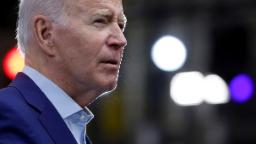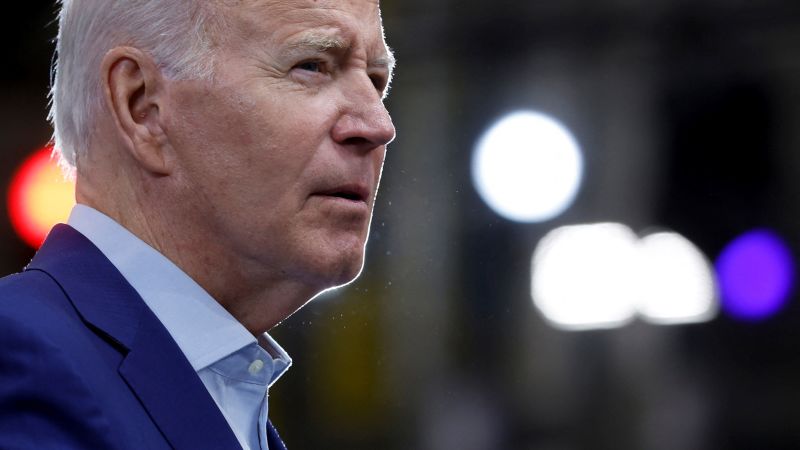
Washington, DC
CNN
—
The Biden administration on Thursday defended its communications with social media giants in court, arguing those channels must stay open so that the federal government can help protect the public from threats to election security, Covid-19 misinformation and other dangers.
The closely watched court fight reflects how social media has become an informational battleground for major social issues. It has revealed the messy challenges for social media companies as they try to manage the massive amounts of information on their platforms.
And it has highlighted warnings by independent researchers, watchdog groups and government officials that malicious actors will continue to try to disrupt the country’s democracy by flooding the internet with bogus and divisive material ahead of the 2024 elections.
In oral arguments before a New Orleans-based federal appeals court, the US government challenged a July injunction that blocked several federal agencies from discussing certain social media posts and sharing other information with online platforms, amid allegations by state governments that those communications amounted to a form of unconstitutional censorship.
The appeals court last month temporarily blocked the injunction from taking effect. But the outcome of Thursday’s arguments will determine the ultimate fate of the order, which placed new limits on the Departments of Homeland Security, Health and Human Services and other federal agencies’ ability to coordinate with tech companies and civil society groups.
If upheld by the US Court of Appeals for the Fifth Circuit, the injunction would suppress a broad range of public-private partnerships and undermine the US government’s mission to protect the public, the Biden administration argued.
“For example, if there were a natural disaster, and there were untrue statements circulating on social media that were damaging to the public interest, the government would be powerless under the injunction to discourage social media companies from further disseminating those incorrect statements,” said Daniel Tenny, a Justice Department lawyer.
Now, a three-judge panel of the Fifth Circuit is set to decide how executive agencies may respond to those threats.
At issue is whether the US government unconstitutionally pressured social media platforms into censoring users’ speech, particularly when the government flagged posts to the platforms that it believed violated the companies’ own terms of service.
During more than an hour of oral arguments Thursday, the three judges handling the appeal gave little indication of how they would rule in the case, with one judge asking just a couple of questions during the hearing. The other two spent much of the time pressing attorneys for the Biden administration and the plaintiffs in the case on issues concerning the scope of the injunction and whether the states even had the legal right – or standing – to bring the lawsuit.
Before them is not only the request to reverse the lower court injunction, but also one from the administration to issue a more lasting pause on that injunction while the judges weigh the challenge to it.
In briefs submitted to the court ahead of Thursday’s hearing, the Biden administration argued that a lower court judge was wrong to have identified the government communications with social media companies as potentially, in his words, “the most massive attack against free speech in United States’ [sic] history.”
“There is a categorical, well-settled distinction between persuasion and coercion,” the administration’s lawyers wrote, adding that the lower court “equated legitimate efforts at persuasion with illicit efforts to coerce.”
The administration’s opponents in the case, which include the states of Missouri and Louisiana, have argued that the federal government’s communications with social media companies are a violation of the First Amendment because even “‘encouragement short of compulsion’ can transform private conduct [by social media companies] into government action” that infringes on users’ speech rights.
“Every one of these federal agencies has insinuated themselves into the content moderation decisions of major social media platforms,” D. John Sauer, an attorney representing the state of Louisiana, told the judges on Thursday. Hypothetically speaking, he added: “The Surgeon General can say, ‘All this speech is terrible, it’s awful.’ …. But what he can’t do is pick up the phone and say, ‘Take it down.’”
In addition to the states, five individuals are also plaintiffs in the suit. They include three doctors who have been critical of state and federal pandemic-era restrictions, a Louisiana woman who claims she was censored by social media companies for her online criticisms of Covid health measures and a man who runs a far-right website known for pushing conspiracy theories.
Much of Thursday’s oral arguments hinged on the definition of coercive communication and how courts have analyzed government pressure against private parties in past cases.
But the states also claimed that there could be a pathway to finding a constitutional violation if the court agreed that social media companies, in heeding the administration’s calls to action, had been effectively turned into agents of the US government.
In the past month, after District Judge Terry Doughty issued his injunction, current and former US officials, along with outside researchers and academics, have worried that the order could lead to a chilling effect for efforts to protect US elections.
“There is no serious dispute that foreign adversaries have and continue to attempt to interfere in our elections and that they use social media to do it,” FBI Director Christopher Wray testified to the House Judiciary Committee in July. “President Trump himself in 2018 declared a national emergency to that very effect, and the Senate Intelligence Committee — in a bipartisan, overwhelmingly bipartisan way — not only found the same thing but called for more information-sharing between us and the social media.”
Ohio Republican Rep. Jim Jordan, the panel’s chair, remains unconvinced. Earlier this week, he and other Republican lawmakers filed their own brief to the appeals court, accusing the Biden administration of a campaign to stifle speech.
“On issue after issue, the Biden Administration has distorted the free marketplace of ideas promised by the First Amendment, bringing the weight of federal authority to bear on any speech it dislikes—including memes and jokes,” Jordan and the other lawmakers wrote. “Of course, Big Tech companies often required little coercion to do the Administration’s bidding on some issues. Generally eager to please their ideological allies and overseers in the federal government, these companies and other private entities have repeatedly censored accurate speech on important public issues.”

